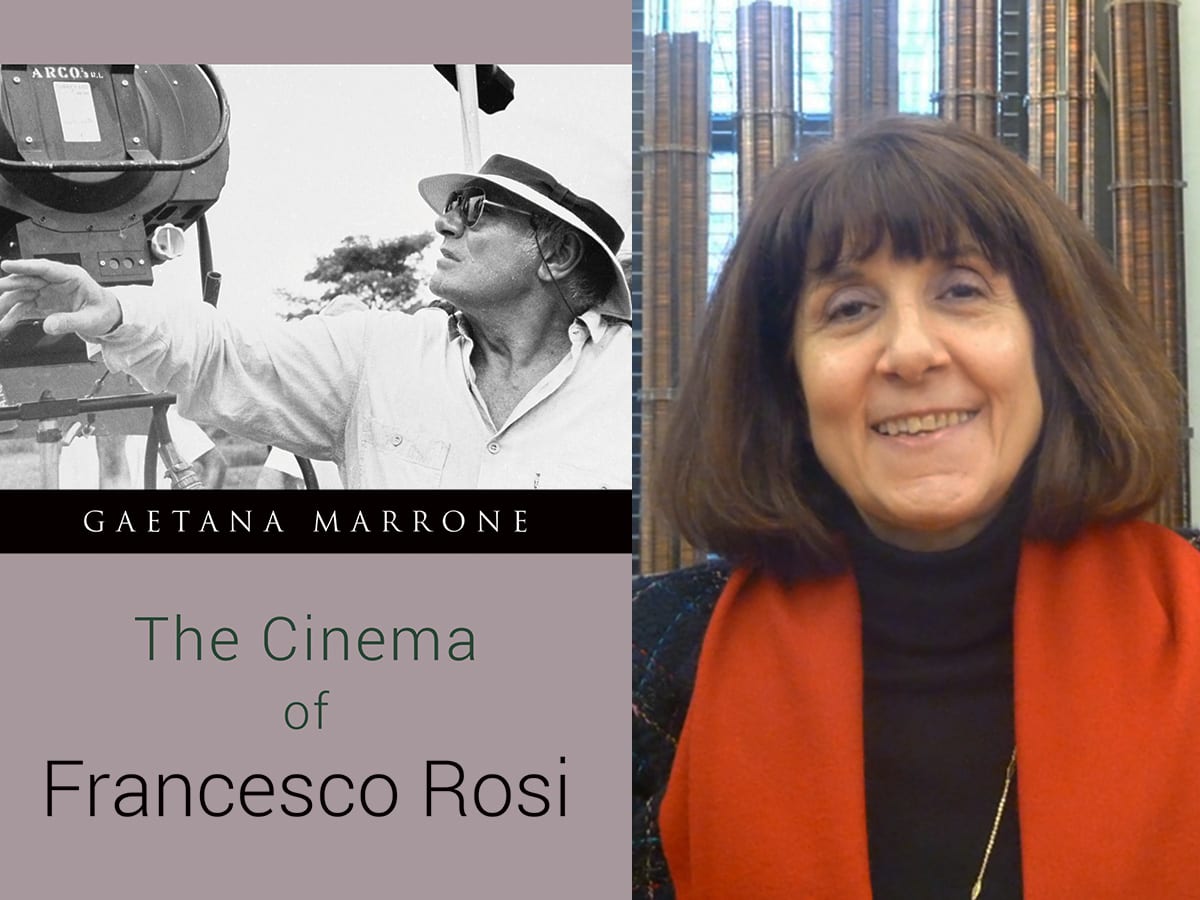Gaetana Marrone is Professor of French and Italian. Her new book “The Cinema of Francesco Rosi” is published by Oxford University Press. Martin Scorsese and others have given the work high praise.
How did you get the idea for this project?
It was entirely by chance. As I was finishing my book on Liliana Cavani, Francesco Rosi was coming to the US and I was asked if we were interested in having him at Princeton. Under the sponsorship of the Humanities Council he came for a week. We organized a retrospective and the American premiere of his last film The Truce, adapted from Primo Levi’s memoir. He then invited me to visit him in Rome. On one occasion he showed me his personal archives. At the time I actually intended to pursue another book on women filmmakers but the idea of working on such rich materials, spanning half a century of Italian cultural and cinematic history, attracted me. All of my books are based on rare archival sources. So that was my initial challenge with Rosi as well. I was also facing one of the great realist artists of post-war Italian cinema, indeed a monumental figure of post-war world cinema. I had a difficult task ahead of me.
How has your project developed or changed throughout the research and writing process?
The book began as a “standard” study of Rosi’s cinema and its cultural and visual context. But I soon became dissatisfied with a “standard” chronological, thematic approach. Rosi left Naples, his hometown, as a young hopeful in 1946. He began as an assistant of Luchino Visconti on La terra trema in 1948 and underwent a long apprenticeship before emerging as the provocative artist of Salvatore Giuliano (1961) commonly considered his masterpiece. Yet little attention was paid to his visual style. Rosi’s creative use of film as document, and as spectacle, became the core of my study, a study of the specific cinematic techniques that visually, compositionally, express his vision of history and present social and political realities that transcend Italy. My book offers intertextual analyses within such fields as history, politics, literature, and photography, much of it based on production information gleaned from Rosi’s archives and interviews.
What questions for future investigation has the project sparked?
Tough minded, resilient in pursuing his goals through long years of apprenticeship, Rosi dared to defy the establishment even when subjected, as he was, to death threats. His films raise questions about objectivity in history and culture: in particular the great agony of the South with its economic and cultural subjection to the hegemonic North, the difficulty of emigration, the play of power within hierarchies structured by political domination. These issues are today’s most important issues. As Rosi rejected the traditional cinematic discourse of spectacle, with its inherent passivity, to promote instead a dialogic rapport between the screen and the spectator, I hope this book will actively engage the reader in an exchange of ideas to pursue an exploration of historical events that examine, shape, and reflect the national, indeed the global self.
Why should people read this book?
This is the first comprehensive book on Francesco Rosi in English, but also the first in any language to make room for this extraordinary filmmaker whose representations of history, ethical questioning, and political power push the medium to uncharted areas of technical experimentation. Concentrating on Rosi’s career through production records, on location shooting, international critical reception, my study offers a close reading of films and master scenes—including over 100 illustrations. Working on Rosi was one of the great learning experiences of my life. It was a passionate journey not only along a personal career but across historical and social terrains that transcend geographical boundaries. I hope my readers to undertake this journey, a vehicle for pondering our relations with the present as well as the past.
Learn more about other recent publications by Princeton University faculty in the Humanities by exploring our Faculty Bookshelf.
















